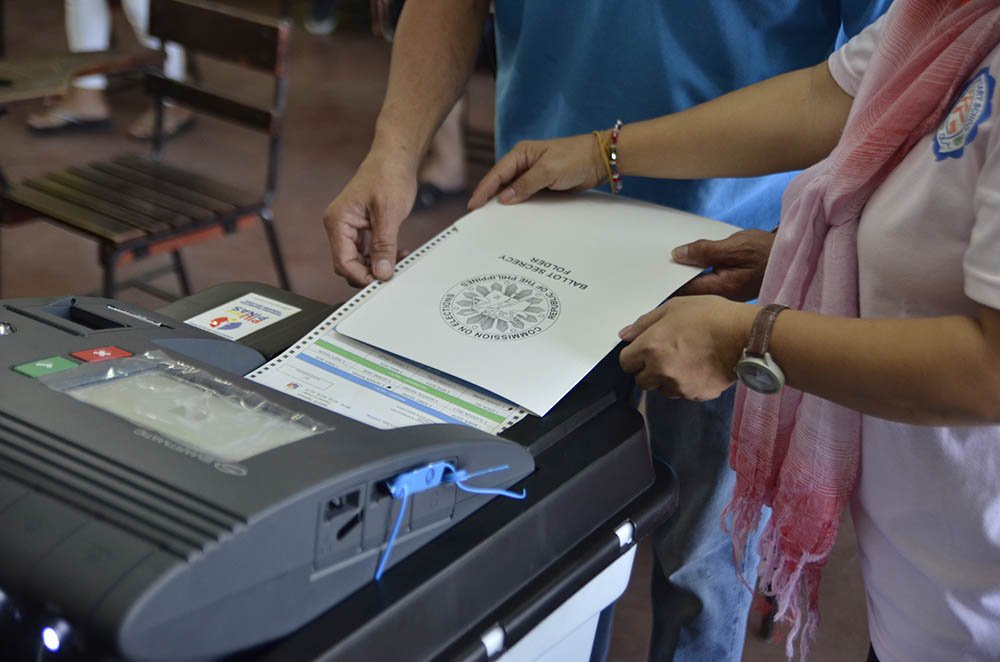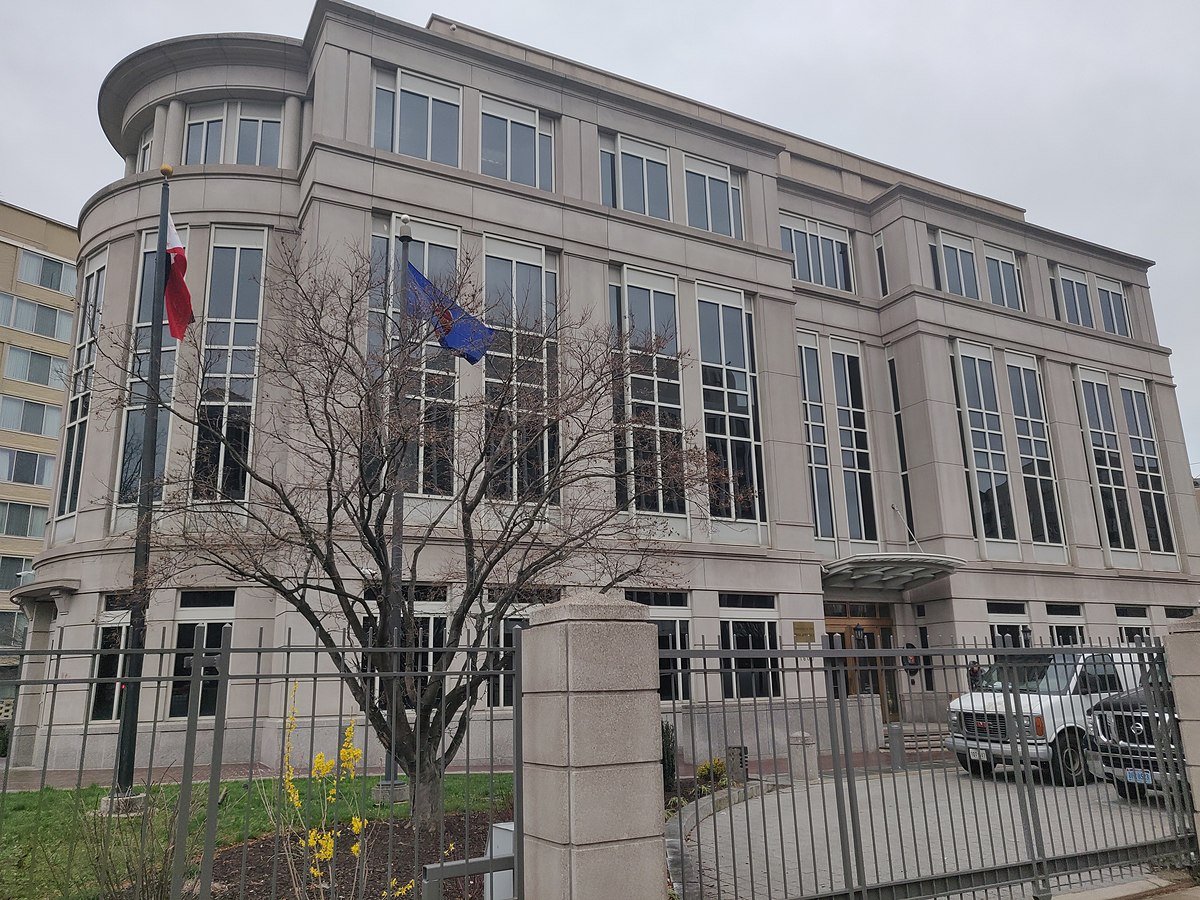Not to Vote Is to Vote
/Entering a voter’s ballot in the voting machine (Source: philippinelifestyle.com)
In the same way that surveys and rallies do not constitute election results, a mere intention to exercise one’s right of suffrage is not a vote. Those that participated in a survey or attended a rally will not necessarily mail in their ballot (for overseas Filipinos) or show up at the polling precinct. Many of them are not even registered voters to begin with. Moreover, some may still change their mind. Survey and rally numbers are indicators of support but must still be converted to actual votes.
Veteran political operators know that it is easier and more cost-effective to encourage the voting by 100 supporters who did not vote in the past than it is to convince 50 voters to switch support from one candidate to the other. Hence, the key to winning an election is to energize and mobilize the base.
This is where rallies can play a large role. They help build excitement and momentum. They ignite a spark which can fire up others and illumine many paths darkened by disinformation. They spur action, a self-transcendence that can inspire that powerful tweet, that pivotal phone call or family discussion, that brave and wide casting of nets to win more to the cause. Rallies can turn attendees into ardent advocates, tireless canvassers, and faith-filled fishers of men and women.
Canvassing
In the U.S., the wooing of supporters starts early in an election cycle through canvassing, which is a systematic initiation of direct contact with voters.
Paid or volunteer canvassers visit or call households in a neighborhood, condominium building or apartment complex based on lists generated from a voter database. They will ask leading questions and deliver a message in support of the party or the candidate they are campaigning for. Just like zealous religious missionaries, they distribute campaign flyers and literature. If a conversion occurs, the new supporter is invited to volunteer as well join in the campaign. Those who are persuaded are also requested to mount a sign on their house lawn, apartment window and vehicle.
With today’s technology, canvassers are now provided with a tablet or smartphone that is equipped with a canvassing app.
After a visit, the data collected will be entered into the campaign database. A list of the candidate’s supporters, opponents and “maybes” is meticulously prepared with follow up meetings planned and assigned. On election day, calls are made to give a final exhortation to supporters. Volunteers even arrange or provide transportation to and from polling stations to ensure every vote is cast.
Voting by mail (Source: SBSFilipino.com)
Overseas Filipino Voting
Republic 9189 or the Overseas Absentee Voting Act of 2003 was passed to acknowledge the contributions of Filipinos residing abroad and their say in choosing the nation’s leaders.
The 30-day voting period for overseas Filipinos for the May 2022 elections officially started on April 10. They will vote either in person or by mailing their ballot to 93 Philippine diplomatic posts.
Close to 1.7 million Filipinos living abroad are registered for the May 2022 elections, a figure that is down by about 125,000 since the last elections in 2019. The drop was brought about by the return of Overseas Filipino Workers to the country as a result of the Covid pandemic.
In terms of percent ages, 46 percent are based in the Middle East and Africa, 27 percent in Asia-Pacific, 18 percent in North and Latin America and 9 percent in Europe; 1.7 million constitutes approximately 2.5 percent of the total voting population of 67.5 million voters.
Unfortunately, the 31 percent Overseas Filipino voter turnout during the 2016 elections dropped to 18 percent in 2019. Given the excitement generated by the 2022 presidential race, this figure will probably climb to a new high.
In a previous article, I suggested that Overseas Filipinos can play a crucial role in influencing the outcome of the election through remittances of truth and accurate information. They have risen to the challenge. Facebook posts, Instagram photos, zoom programs, and other electronic messages have arrived at Manila doorsteps -- virtual balikbayan boxes offering live accounts and objective opinions of what really happened during Martial Law and what is happening in the country now.
The OFW’s role does not end there. In this “most important election of our lifetime,” we need every one of those 1.7 million votes cast!
“A final exhortation to kabayans overseas, let us overcome every hindrance, endure every inconvenience, work through every logistical difficulty and find a way to cast our votes. ”
Delay in the Voting
A delay in the voting proceedings can lead to disenfranchisement.
There are confirmed reports that certain Philippine consulates are receiving their election paraphernalia late and thus delayed in sending the ballots out.
On April 12, the Philippine Embassy in Washington D.C. announced it only received the first 10 percent of the total expected ballots to arrive. As of this writing, our Honorary Consul General in Georgia told me that neither he nor any of his constituents have received their ballots.
The Philippine Embassy in Washington, D.C. (Source: Wikimedia)
Similarly, our consulate in Milan had not received their ballots as of April 13.
Probably because of my former position, I was given the courtesy (and feel quite fortunate) that my ballot was sent via messenger on April 13 by the ever helpful San Francisco consulate. I noticed that the return envelope had two stamps affixed to it but had read in social media that because of the weight, a third stamp should be added so that the envelope will not be undelivered by the post office. I consulted with the consulate and was advised that it was better if I “stick another Forever stamp.” So for voters similarly situated, either place another stamp or just personally drop your ballot at the appropriate consulate to make sure your vote is counted.
Disruption in the Voting
I understand that there were not enough vote counting machines deployed in our Hong Kong consulate to accommodate all of those who had patiently lined up, so that some of the voters had to be turned away.
Voters in Rome had to physically leave the embassy, cross the street and fill up their ballots on the sidewalk.
Our embassy in Singapore has confirmed that a pre-shaded ballot was "inadvertently and unintentionally" given to Cheryl Abunda (PhD in Physics). She was attacked on social media as peddling fake news. She deserves a public apology.
Mark Dennis Retrato posted that he received two official ballots from the Philippine Embassy in Sweden. We still need to hear the explanation for this incident.
It is extremely difficult to manage an election, but these seemingly isolated incidents are serious concerns that need to be addressed sooner rather than later.
Delay and disruption can frustrate the overseas vote. A final exhortation to kabayans overseas, let us overcome every hindrance, endure every inconvenience, work through every logistical difficulty and find a way to cast our votes.
Dietrich Bonhoeffer said:, “Silence in the face of evil is itself evil: God will not hold us guiltless. Not to speak is to speak. Not to act is to act.” Let me add to this litany by saying, “Not to vote is to vote.”
Before serving as chairperson of the Philippine Commission on Elections (2015-17) and Presidential Commission on Good Government (2010-15) the agency tasked to recover the Marcos ill-gotten wealth, Andy Bautista worked with two international law firms in New York and Hong Kong (1993-2006). He also served as dean of the Far Eastern University Institute of Law (1999-2013).
More articles from Andres D. Bautista






